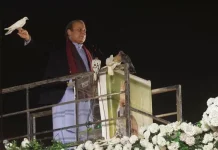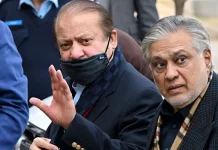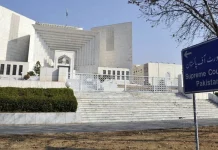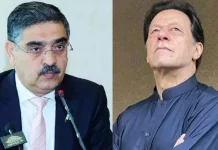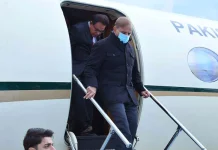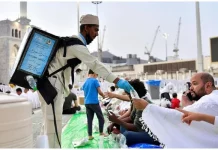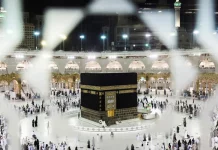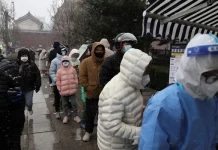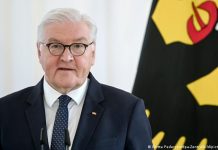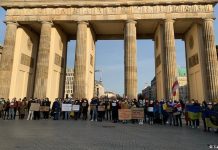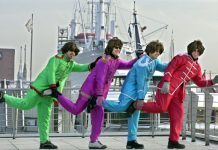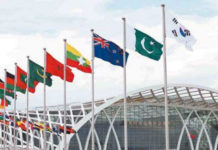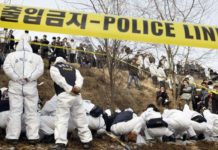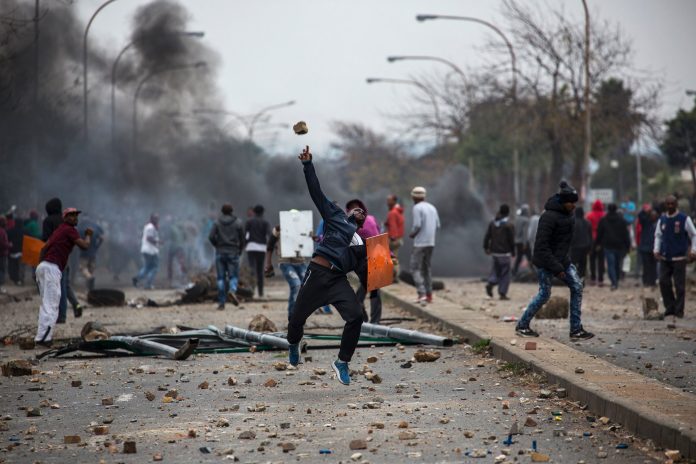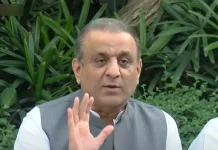South Africa has deployed soldiers to tackle deadly unrest triggered by the jailing of former President Jacob Zuma.
Shops were looted and buildings set on fire on Monday as Zuma challenged his sentence at a hearing in the top court.
At least six people have been killed and 200 arrested since the unrest began last week, after Zuma handed himself in and began his 15-month sentence.

Zuma was convicted of contempt of court after failing to attend an inquiry into corruption during his presidency.
The 79-year-old, who denies corruption, is hoping to get the sentence rescinded or reduced at the Constitutional Court hearing. However, legal experts say his chances of success are slim.
The case has sparked an unprecedented legal drama in South Africa, which has never seen a former president jailed before.
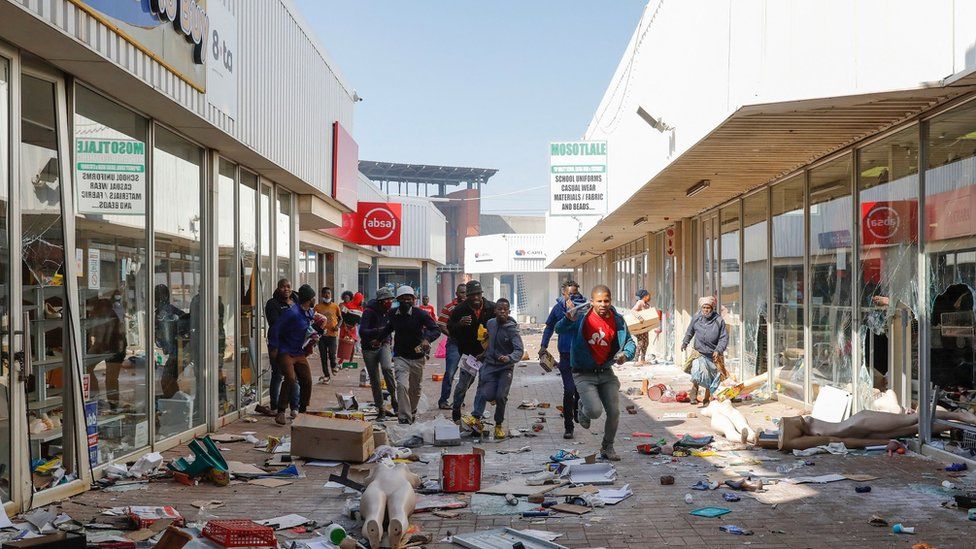
A shopping centre in the city of Pietermaritzburg, in Zuma’s home province of KwaZulu-Natal, was set on fire on Monday. Images also showed other buildings and vehicles being set alight, and shops looted.
The situation in Pietermaritzburg is volatile, the tezkhabar international reports from the city. Protesters responded with live ammunition when riot police fired rubber bullets to disperse them at one of the shopping centres that were looted overnight, she says.
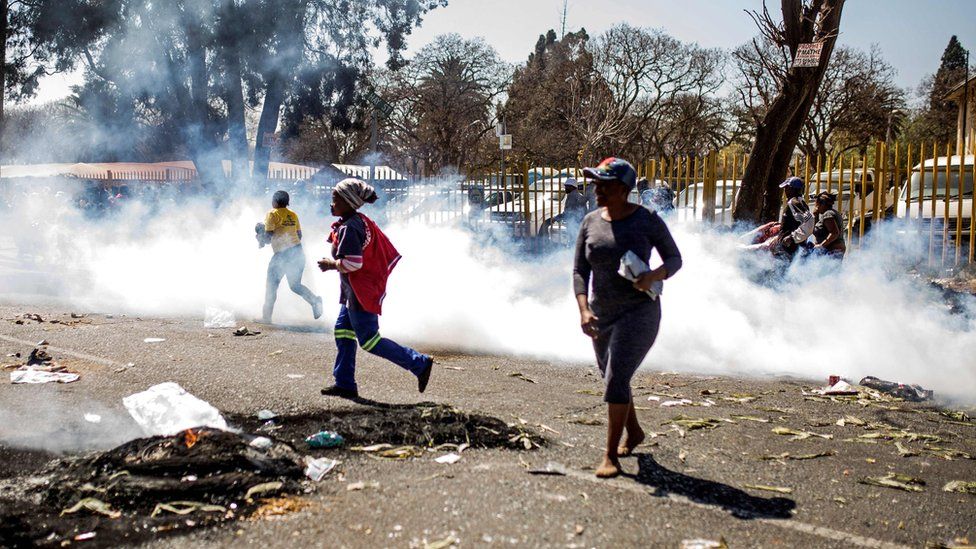
Police say opportunistic criminals have taken advantage of the chaos.
The violence has also spread to Johannesburg, in Gauteng province.
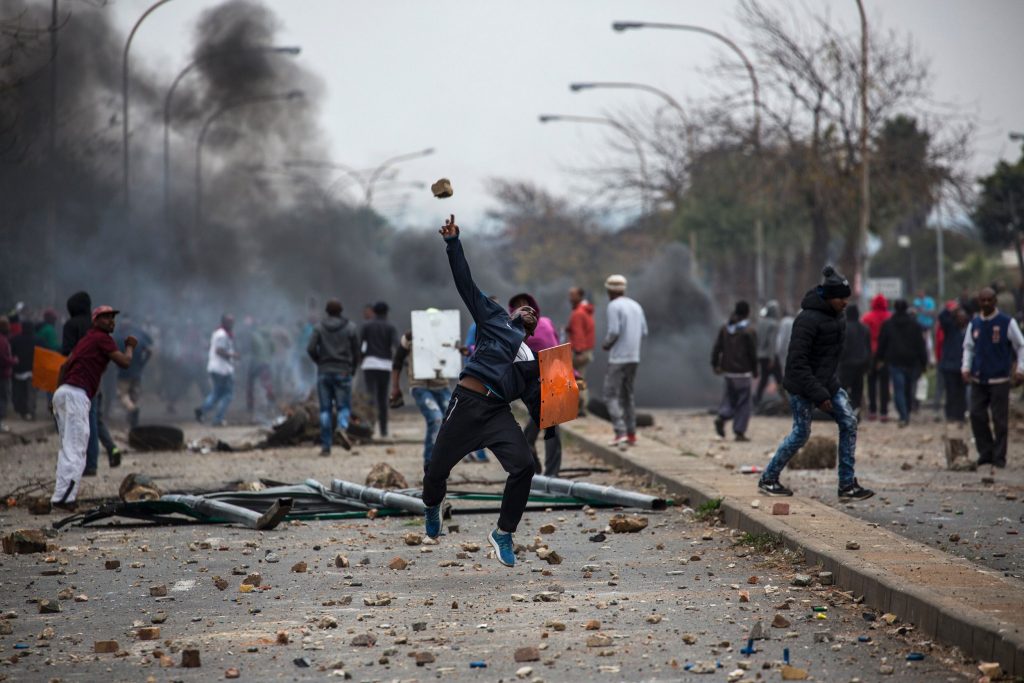
On Sunday, protesters armed with sticks, golf clubs and branches were seen marching through Johannesburg’s central business district.
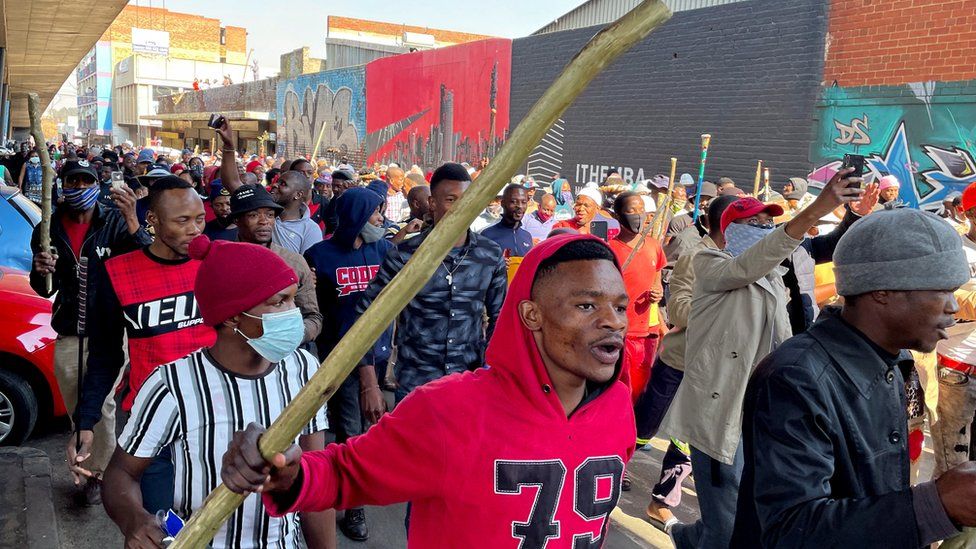
Some Covid vaccination sites have been forced to close amid safety concerns.
The military said troops were being deployed to assist police and “quell the unrest that has gripped both [provinces] in the last few days”.
President Cyril Ramaphosa has appealed for calm, saying there is no justification for the violence.
Zuma was convicted of defying an instruction to give evidence at an inquiry into corruption during his nine years in power.
He has testified only once at the inquiry into what has become known as “state capture” – meaning the siphoning-off of state assets.
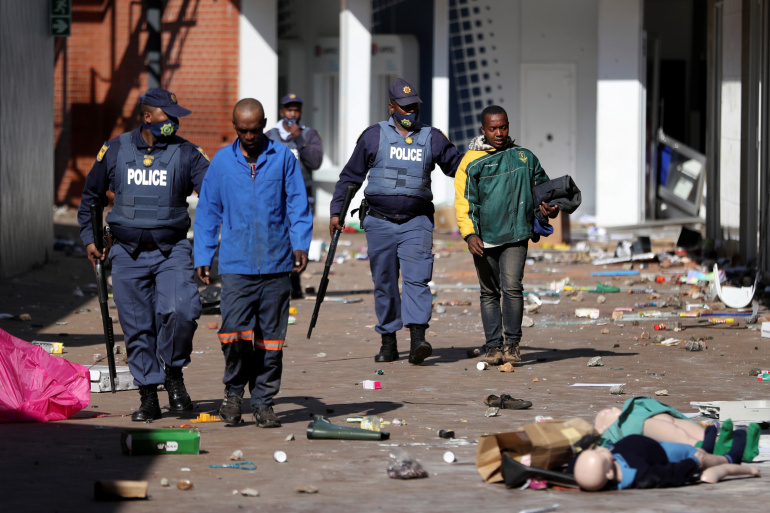
In a separate legal matter, he pleaded not guilty last month in a corruption trial involving a $5bn (£3bn) arms deal from the 1990s.
His supporters argue he is the victim of a political witch hunt, orchestrated by Ramaphosa allies.



